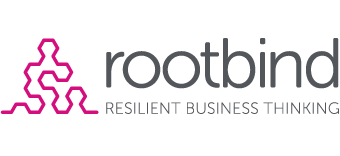Shifting the Gender Gap to an ‘All Differences Matter’ Narrative
This article purposefully shifts the narrative that disadvantages female entrepreneurs to a focus on entrepreneurial differences in thinking, traits and behaviour of successful business leaders. It provides insight and suggestions from research to encourage a more inclusive approach to starting and building a business that both genders can adopt in order to play with their strengths.
20th Century thinking that focuses on entrepreneurial gender differences have been changing. However, the latest 2017/18 Global Entrepreneurship Monitor research report stated that female entrepreneurship is up by only 6% globally and that males are still more likely to start businesses than women. The reasons for this difference is dominated by social economic positioning, however female entrepreneurs still face two pervasive ‘false truths’. Firstly, the most persistent challenge female entrepreneurs encounter is the narrative that they have wholly different characteristics to their male counterparts. The notion that men take risks, prefer direct conflict and confrontation and women don’t, is flawed with little empirical evidence. Secondly, are the ‘male-normative’ definitions of overconfident, aggressive risk takers that dominate research and populous media while female entrepreneurs battle to shift the paradigms that judge them against this group. The gap in higher male and lower female business start-up is due to these ingrained perceptions rather than lower female entrepreneurial orientation. Entrepreneurial men and women need to build an ecosystem that breaks across gendered business practices by considering cross gendered strengths and weaknesses for start-up and business growth.
The latest 2017/18 Global Entrepreneurship Monitor research report stated that female entrepreneurship is up by only 6% globally and that males are still more likely to start businesses than women.
Is there a consistent entrepreneurial profile?
Both genders can benefit from the fact that research on a consistent entrepreneurial profile does not exist. Research identified three categories that lead to the failure of studies to reach a consensus on the individual entrepreneurial traits. These three distinctive camps are:
• Inadequate methodologies focusing only on personality;
• Economic explanations of entrepreneurial behaviour;
• Cognitive causes of entrepreneurial behaviour.
Mitchell et al.1 (2007) argued that any entrepreneurial perception and thinking processes should take place within a context, because an entrepreneur is constantly communicating and interacting with the business. Instead of categorising the study, individual entrepreneurs should focus on the interactive relationship with their work context. In this way, the social-economic aspects for women, such as child care, affect their decision-making.
Entrepreneurs tend to have an internal locus of control, and search for answers within themselves while other professional groups are more likely to consider the outside world first to support their decisions.
There is enough psychological evidence that personality is stable throughout life, while behaviour and thinking processes can change. Thankfully, one can choose to act as an extrovert or introvert, irrespective of gender. You might be asking yourself: ‘If the business agenda was not historically set by men, would attributes regarded as ‘male-only’ still be valued, visible and identifiable?’ Many of these attributes assigned to males are context specific in decision-making and is critical to this debate.
Transitioning from gendered specific dialogue to understanding ourselves – strengths and weaknesses, fears and ambitions – will lead to a more successful integration between self and strategy; and risk and reward. Successful start-up and healthy business growth requires a strategy and a mindful approach to what you attribute those successes to. What is your business philosophy – does winning at business involve fighting or victory? Chu2 (2007) argued that most people prefer a win-win. In order to understand what drives your own decision-making, ask yourself the following questions:
• Cognition – what does success look like to you?
• What do you attribute that success to?
• When you are successful, what thoughts need to be changed or sustained?
By going through this process, the psychological concepts of locus of control will build confidence by reinforcing accurate reasons behind your actions and avoid biases. Entrepreneurs tend to have an internal locus of control, and search for answers within themselves while other professional groups are more likely to consider the outside world first to support their decisions. Entrepreneurial success is defined by your interrelationships and interactions which can be developed by all individuals.



